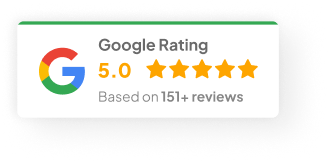30 Jul 25
Why a High-Converting Car Web Page Design Matters for Auto Businesses
A strong car lineup and great service might get people through the door. But if the website’s clunky, slow, or outdated? Most of them never make it that far.
Car buyers are doing their homework online. If they land on a page that frustrates them, or worse, doesn’t load fast, they bounce. It’s that simple. Attention spans are short, expectations are high, and the competition’s one tab away.
But when a website is dialed in, it doesn’t just sit pretty. It brings in the clicks, the calls, the bookings—the stuff that actually moves the dial.
Let’s break down what that really means, and why nailing it matters more than ever right now.
So… What Makes a Car Web Page Actually Convert?
Look, it’s not about flashy sliders or overly designed pages with too much going on. That stuff looks cool in a pitch deck, sure—but in the real world? It just slows people down.
A high-converting page is built with purpose. Every section, every word, every image has a job to do.
Think of it like stepping into a well-run dealership. Clean layout, easy to find what you need, no pushy distractions. Feels good, right? Same idea here. Your page should guide people smoothly from interest to action—without making them work for it.
That same experience should translate online.
Some of the key features that separate a high-performer from a dud:
- Bold, clear CTAs: “Book a Test Drive.” “Enquire Now.” These buttons need to stand out. If users can’t spot them in two seconds, they won’t bother looking any longer.
- Fast load times: Google says bounce probability jumps 32% if a page goes from 1 to 3 seconds. Every extra second? More lost leads.
- Trust signals: Star ratings, dealer certifications, warranty info—real, tangible reasons to believe. They matter, especially when the purchase is a five-figure decision.
- Mobile-first design: Over 60% of searches happen on mobile. If the mobile version of the site is a mess, that’s more than half the audience gone.
- Logical navigation: Drop-downs that make sense. Pages that follow a buyer’s journey. Every click should feel intuitive.
Why Design Really Matters for Automotive Websites
Most car buyers don’t walk in cold anymore. They’re comparing models, reading reviews, checking finance options, all before ever setting foot on a lot.
The site isn’t just part of the process, it is the process.
So, what are they expecting to see?
- Feature and trim comparisons they can easily understand
- Quality images or even better, 360° walkarounds
- Transparent financing information
- A quick and painless test drive booking process
- An easy way to ask a question without picking up the phone
For service-driven auto businesses, expectations shift a little. But the pressure’s the same. If the booking form fails to submit, or the mobile site lags? That could be a lost regular. And trust, once it’s gone, takes a lot to rebuild.
What Actually Drives Conversions on Auto Websites
It’s one thing to know where the issues are. Fixing them takes a different level of precision. A strong-performing site for autobusinesses usually includes:
- Make the message obvious: “0% Finance” or “Book Now”—whatever it is, say it fast, say it first.
- Use strong visuals: Sharp photos, short vids, friendly faces. Let them do the talking.
- Cut the form fluff: Three fields max. Quick and easy wins every time.
- Live chat or chatbot: Big purchases come with lots of questions. Having someone (or something) to answer in real time makes a big difference.
- SEO and UX working together: It’s not enough to rank. The experience has to back it up. That means fast load times, clean layouts, and relevant content.
Why Partnering with the Right Web Agency Makes the Difference
Here’s the thing, knowing what the site needs to do is one part of the puzzle. Building it right? That takes skill, especially in the automotive space.
Working with a web design agency that actually focuses on conversions, not just visuals, can make or break results.
Some things worth looking for:
- A conversion-first mindset: It’s not about flashy features. It’s about what drives actions.
- Experience in automotive: Agencies that know how buyers behave in this space don’t need a ramp-up. They come in already understanding the journey.
- A repeatable, transparent process: From discovery to wireframes to testing, it should all be structured. No guessing, no winging it.
- Post-launch support: The job’s not done when the site goes live. Tracking bounce rates, measuring conversions, adjusting layouts – this stuff continues behind the scenes.
According to Forrester, better UI design alone can boost conversions by up to 200%. And better UX? That can increase conversions by as much as 400%. That’s not theory. That’s the benchmark for serious businesses.
Why Chromatix
At Chromatix, conversion-led design is our specialty. For more than a decade, we’ve helped car dealerships, mechanic services, and auto sites perform better on desktop and mobile.
The focus? Clear messaging. User journeys that actually reflect how people buy cars or book services. Booking flows that don’t make users backtrack. Mobile layouts that work. We know what stops conversions, and more importantly, how to fix it.
That’s why clients don’t come to us just for “a nice new automotive website.” They come for results.
Conclusion
Your website shouldn’t just look the part. It should do the job. Sell the car, secure the booking, and build the trust.
Not sure if your current site’s working hard enough? Let’s take a look together.
Ready to drive more leads with a high-converting web design? Let’s chat about what Chromatix can do for your auto business.


